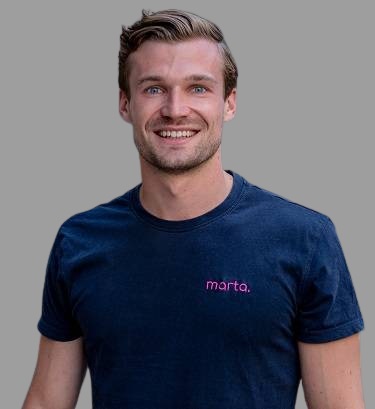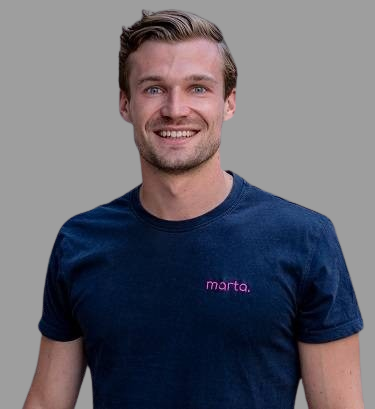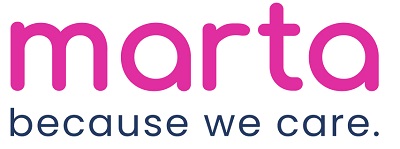Marta: Connecting and supporting caregivers
Philipp Buhr, a passionate entrepreneur co-founded Marta, a Germany-based online marketplace that uses algorithms to match live-in caregivers with elderly clients who need assistance. marta has just received a €6.6m seed investment from Capnamic, Almaz Capital, GMPVC and Ithaca. In an interview, he speaks on an array of topics. Excerpts:
Conception of Marta
Marta is a marketplace for live-in care, operating out of four countries, founded by Philipp Buhr and Jan Hoffmann in 2020. According to Philipp, most Western societies witness an ever-aging population while being faced with a shortage of professional caregivers or senior residences to take care of them. “We live in an emancipated society where it isn’t common for one partner to stay at home to take care of the elderly. The shortage in labor is largely due to the job of caregiving being unattractive, underpaid and unprofessional caregivers for tasks they are overqualified for.”
He adds that most tasks surrounding elderly being taken care of at home require no formal education of +3 years. “With marta, we built a platform that matches families and non-certified caregivers based on their skillset and needs and suggest to which degree a non-certified caregiver will be able to take care of the support needed. Thus, freeing up certified caregivers to do the medical work they are trained to do while allowing a high level of attention for each patient nevertheless.”
Marta offering a live-in care market
The market for live-in care is very fragmented, in-transparent and in most countries not properly regulated as live-in caregivers usually do not have a formal education in healthcare, observes Philipp. “The quality controls for families and caregivers alike are non-existent and caregivers are left without guidance in taking care of the elderly.”
marta is developing a coordination tool, which allows all stakeholders to participate and create a daily rhythm for the household, which is in particular important for patients suffering from dementia. Caregivers are able to structure their day independently based on the patients conditions and preferences and can ask for experts support on demand.
Marta’s platform
All around the world the market for live-in care is very inefficient, in Europe and Southeast Asia especially. “Typically, mediators in both countries as well as large lead generation companies pocket the most money being paid to the caregiver. In Europe the transaction fees in the live-in care market lie between 50-70%. Hence, by onboarding caregivers and care seekers directly to the platform and only charging 23% transaction fee; Marta provides not only better quality and more transparency but can also reduce cost for care seekers while increasing the wage of caregivers. Based on over 100 data points of caregivers and care seekers we suggest the best matching party. In the background we automized all administrative tasks of registrations, invoicing, insurance etc.”
Leadership traits
“I believe that good leadership comes from personal humility paired with an unbreakable commitment to the cause that only increases in light of adversity of bad news. The commitment needs to be for the purpose and the organization and not for personal gain.”
The success mantras
“The simple willingness and belief that no one will work harder than you and therefore you can achieve what you have set out to do gives me peace of mind. When I came about the problem of inefficient elderly care in my own family and dug into the topic of live-in care, I became obsessed with it. Having no background in the industry I wanted to do my best to understand every aspect of the market nevertheless; I started by becoming a live-in caregiver myself, thereafter, moving to Poland where I worked in an existing recruiting company and only thereafter opened our first office in Berlin.”

Company: Marta
Website: www.marta.de
Management: Philipp Buhr, Managing Director & Founder
Founded Year: 2021
Headquarters: Berlin, Germany
Description: marta provides software for the live-in care market that empowers caregivers and helps our seniors to age in dignity.




